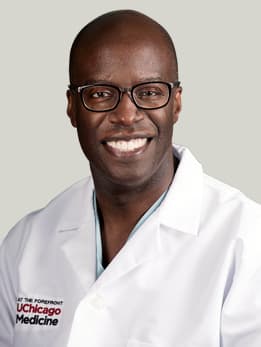Jaw Surgery (Orthognathic Surgery) FAQs
Frequently Asked Questions about Jaw Surgery
After surgery, mild discomfort/soreness can be expected for the next week, which is controlled by pain medications (over the counter Tylenol, Motrin or prescription Tylenol with Codeine). Acute swelling after surgery can peak (get worse) 72 hours after surgery, and can take 2 weeks to resolve. Other symptoms, such as nasal congestion, mild nasal discharge, sore throat and mild ear aches can be anticipated.
In most cases, your upper and lower teeth will be bound together with dental elastics. This is another measure used to stabilize the correction and allow the bones to heal. If segmental surgery on the upper or lower law is performed, the jaws may be wired closed for further stability.
Conventional orthognathic surgery is generally performed when the jaws have reached skeletal maturity. In young women, skeletal maturity is achieved later (age 17-19 years). For severe jaw discrepancies or facial asymmetries, your child may be a candidate for a procedure known as a distraction (ask your surgeon if your child qualifies).
Mild discomfort and getting used to the teeth being bound may take 3-5 days. Acute surgical swelling, nasal congestion and sore throat can last approximately 7-10 days. Patients generally take a week out of work/school to recover at home.
Generally, patients return to work/school after one week off. Your surgeon will draft a letter to your workplace or school, stating the return date and any restrictions.
Besides dietary restrictions, you will be restricted from the following activities:
- Nose blowing– especially in upper jaw surgery (none for 3 days)
- Tooth brushing (none for 2 weeks) (a waterpik device can be used to help remove debris from the brackets as needed)
- Heavy lifting (none for 3 weeks)
- Contact sports (none for 6-8 weeks)
- Driving a vehicle/operating heavy machinery (none until you are pain-free and off prescription pain medicine)
- Playing a wind/brass instrument (none for 4 weeks)
Because the bone segments/incisions are healing, and the teeth are bound by elastics/wires, a full liquid/pureed diet is to be strictly maintained for 2 weeks after the surgery. After the 2 weeks, a soft mechanical diet is initiated to minimize loading on the healing jaw bones. A nutritionist will consult with you on the first postoperative day prior to hospital discharge to recommend a diet tailored to your caloric needs.
For the most part, all incisions are kept inside the mouth, and may take up to 2 weeks to heal, thus the need to avoid solid food. In cases of lower jaw surgery, 2 small port scars are placed along the angle of the lower jaw (approximately 1 centimeter in length); these ports facilitate screw fixation of the lower jaw.
All sutures used are absorbable so there are no sutures to remove after surgery.
The specific precautions for this surgery are few. We ask that you refrain from smoking (at least 4 weeks prior), and particular medications (all herbal, aspirin and other anti-inflammatory drugs such as Motrin and Aleve) at least 7 days prior to surgery. These medications can cause bleeding and complications during surgery. Tobacco use prior to surgery can cause poor circulation to the healing bones and increase the risk of wound healing problems.
After discharge, the main issue that can arise infrequently is an infection. This is noted if you experience fevers (T>101.5° F), chills, sweats, increased redness/swelling of skin, develop drainage out of your incision(s) or notice a bad taste in the mouth. Please call the hospital at the number provided and ask to speak to the Plastic Surgery Resident on Call for assistance.
The outcome will vary from patient to patient, but depends critically on the success of not only the surgery, but each of the treatment phases.
At UChicago Medicine, we are in tune to the fact that true success from orthognathic surgery comes from not only successful realignment of the teeth and restoration of correct dental and skeletal relationships, but also successful re-draping and repositioning of the soft tissues that positively affect the your facial aesthetics.
Although results are individualized, a photographic library of before-and-after images is available upon request.
Coverage depends from state to state. Your surgeon will draft a letter to your insurance carrier stating the medical necessity of this surgery. Despite this, sometimes the insurance company will deny preauthorization of the procedure. Here at UChicago Medicine, we strongly advocate for patient’s need for surgery, and will go through the appeal process, if necessary, to get the surgery approved. In the case that your insurance will not cover the surgery, then the procedure and hospitalization become an out-of-pocket expense for the patient.
Contact Information
If there is an emergency or urgent matter that needs to be addressed right away, please call the UChicago Medicine hospital operator at 773-702-1000 and ask for the plastic surgery resident on call.
For other matters or to set up an appointment, please call our craniofacial clinic coordinator, or for insurance issues, please call our cosmetic surgery coordinator using the following contact information:
Craniofacial Clinic Coordinator, Heather Bailin, RN BSN, 773-702-6302
Aesthetic Surgery Coordinator, Kelsey Jacobson, 773-795-1240
Our Orthognathic Surgeon
Request an Appointment
We are currently experiencing a high volume of inquiries, leading to delayed response times. For faster assistance, please call 1-888-824-0200 to schedule your appointment.
If you have symptoms of an urgent nature, please call your doctor or go to the emergency room immediately.
* Indicates required field

